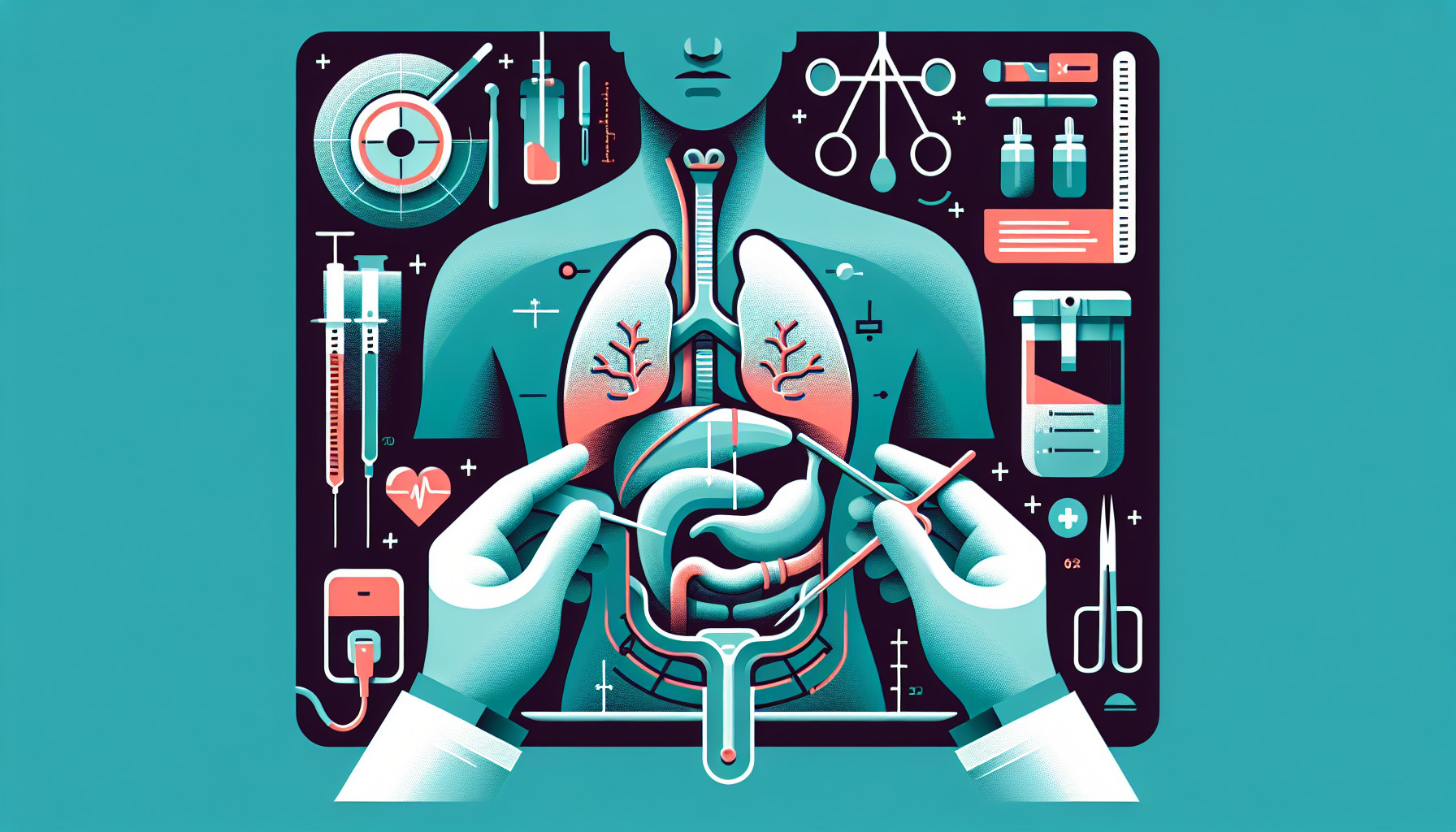Our Summary
This study reviewed other studies to understand the outcomes of pancreas transplants in older patients and from older organ donors. The focus was to see if there were different results when the donor or recipient were older than the age limits recommended by the Transplantation Society of Australia and New Zealand. The researchers looked at how long the patient and the transplanted organ survived after one and five years, as well as complications after the surgery. They found that the age of the recipient didn’t significantly affect the outcomes. However, when the donor was older, the survival of the transplanted organ was worse, but the survival of the patient was not affected. The researchers concluded that just being older shouldn’t be a reason to rule out a pancreas transplant. However, other risk factors should be minimized.
FAQs
- Does the age of the recipient significantly affect the outcomes of a pancreas transplant?
- How does the age of the organ donor impact the survival of the transplanted pancreas and the patient?
- Should age be a determining factor when considering a patient for a pancreas transplant?
Doctor’s Tip
A doctor might tell a patient considering a pancreas transplant to focus on minimizing other risk factors, such as maintaining a healthy lifestyle, managing chronic conditions like diabetes, and following their post-transplant medication regimen closely. Age alone should not be a reason to rule out a pancreas transplant, but it is important to discuss any concerns with your healthcare team.
Suitable For
Patients who are typically recommended for a pancreas transplant are those with type 1 diabetes who have difficulty controlling their blood sugar levels, are at risk for severe complications such as kidney failure, or have experienced frequent hypoglycemic episodes. Additionally, patients who have undergone a kidney transplant and are experiencing complications related to diabetes may also be recommended for a pancreas transplant. It is important for patients to undergo a thorough evaluation by a transplant team to determine if they are a suitable candidate for the procedure.
Timeline
Before pancreas transplant:
- Patient is diagnosed with type 1 diabetes and experiences complications such as kidney failure, nerve damage, or vision problems.
- Patient undergoes evaluation to determine if they are a suitable candidate for a pancreas transplant.
- Patient is placed on the waiting list for a suitable donor pancreas.
- Patient receives a call that a donor pancreas is available and undergoes surgery to receive the transplant.
After pancreas transplant:
- Patient is monitored closely in the hospital for any complications or rejection of the transplanted organ.
- Patient may need to take immunosuppressant medications to prevent rejection of the pancreas.
- Patient undergoes regular follow-up appointments to monitor the function of the transplanted pancreas and overall health.
- Patient experiences improved blood sugar control and a reduced risk of complications associated with diabetes.
- Patient may still need to monitor blood sugar levels and follow a healthy lifestyle to maintain the success of the transplant.
What to Ask Your Doctor
- What are the potential risks and complications associated with a pancreas transplant?
- How long is the recovery process after a pancreas transplant?
- What medications will I need to take after the transplant and what are the potential side effects?
- How will a pancreas transplant affect my diabetes management?
- What are the success rates of pancreas transplants in patients of my age group?
- Are there any lifestyle changes I will need to make post-transplant?
- How often will I need to follow up with my transplant team after the surgery?
- What is the average lifespan of a transplanted pancreas?
- Are there any alternative treatment options I should consider before opting for a pancreas transplant?
- How will a pancreas transplant improve my quality of life?
Reference
Authors: Ling JEH, Choo SZ, Polkinghorne KR, Kanellis J. Journal: Intern Med J. 2022 Sep;52(9):1569-1586. doi: 10.1111/imj.15464. Epub 2022 Jun 23. PMID: 34338407
